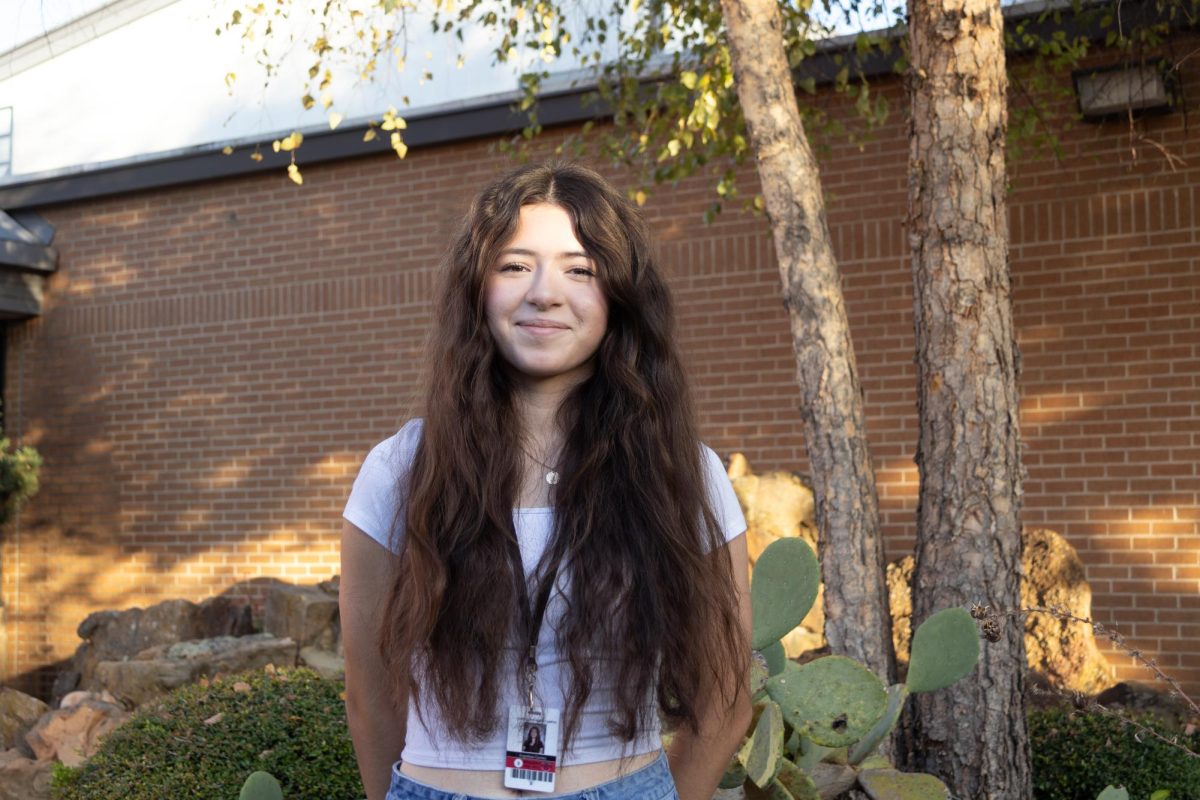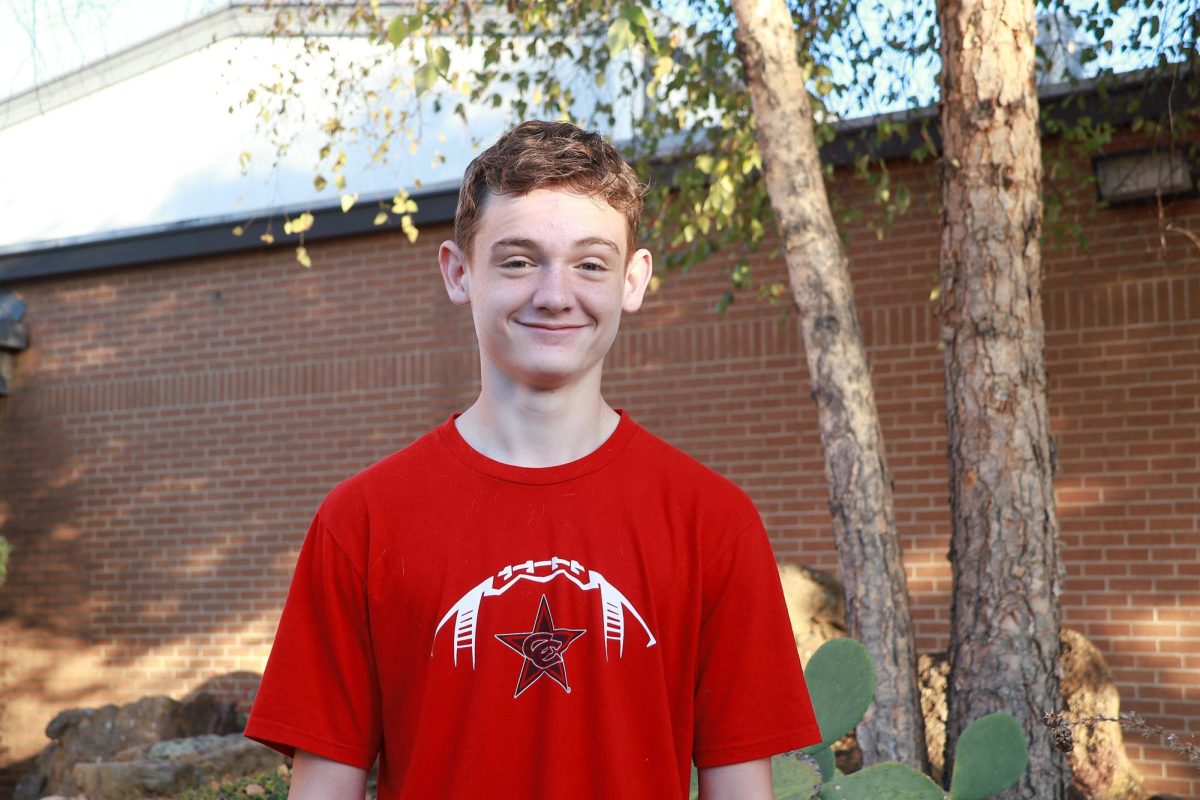By Annie Wen
Staff Writer

Assistant football coach and assistant baseball coach Clint Rushing’s day starts with getting up to the school early to start preparing the material for his AP Physics class.
He teaches for the first three periods of the day, makes his way out to the fieldhouse fourth period to work with the student athletes and is back in class next fifth period, ready to teach again.
His mornings are not always the same: sometimes he is at an early morning workout instead of preparing material. His afternoons always consist of practice, football in the fall and baseball in the spring. On his own time in the evenings and on the weekends he grades papers and creates lesson plans.
The job of being a teacher is impossible to think about: fitted with the task of making sure 100 plus students have learned what the state of Texas has determined each high school student must have learned in that particular subject to continue on in their education.
Some teachers voluntarily add onto their workload by choosing to be a coach. While “coach” and “teacher” are not synonymous, they are, to the individuals who fit both roles, one and the same.
For quarterbacks coach and freshman baseball coach Nate Blackwell, teaching and coaching has brought him back to the place where everything began for him. Blackwell played four years of baseball and football at CHS and graduated class of 2006 before attending Texas A&M University, graduating with a Bachelor’s of Business Administration in Management.
After graduating from A&M in 2010, he worked for a year at Texas Christian University as an undergraduate assistant and began teaching and coaching at Garland High School for a year before returning to Coppell in 2012.
“Growing up, my dad worked in the NFL so I’ve been around football all my life,” Blackwell said. “I got into coaching because I had always been around it and when I looked at my life and what I wanted to do I realized that the only thing that would bring me satisfaction would be to coach and mentor young student athletes.”
Blackwell believes his additional job of being a coach makes him an even better teacher, allowing him to better understand the mind of a high school student dealing with many things at once.
“You see what they go through,” Blackwell said. “You see them in the morning and see how hard they work. I can relate to them because I’ve been where they’re going. I’m more realistic with my expectations because I understand they have other things going on besides the 52 minutes that I will see them.”
It is fairly common to hear at the beginning of each school year “Coach so-and-so is an easy teacher” and with their easygoing attitudes coaches often come across as more of a friend than a teacher. Students who walk into a coach’s class are often surprised to realize that the expectations are no different than in any other classroom.
“When I first found out that I had Coach Blackwell for math I thought that it would be just an easy blow-off class,” freshman Jackson Culp said. “I thought that since he was a coach we wouldn’t do much. That was quickly proved wrong after the first two weeks in his class. His class is my most challenging of the day and he’s always pushing us to go beyond our limits. His breakneck style of teaching has really increased my work ethic and made me a harder worker.”
Government teacher Blake Johnson is one who understands the stigma surrounding coaches who teach.
“When I was younger I wanted to be in a coach’s class because I felt they were more relatable,” Johnson said. “[As a coach] you have to be able to connect, to communicate and build relationships with your athletes if you want them to perform at the highest level. I think that’s confused with being ‘easy’.”
Johnson is one of the few teachers at the high school who teaches a virtual class, meaning most of his work for those classes is done at home on his own time. His job title includes freshman soccer coach and an assistant football coach. Discovering his inability to leave sports behind made him realize he wanted to make a career out of coaching and teaching.
“When I quit playing football it was like I lost a piece of myself,” Johnson said. “I thought I could get over it and once I realized it was like a piece of myself had gone missing I knew I had to coach.”
Johnson changed his major three times in college before pursuing his certification in education. His genuine enthusiasm for his students and athletes are what he believes makes strong teachers and coaches.
“The people that love the sport, and love kids, and love the locker room, those are the ones who are naturally great coaches,” Johnson said. “My philosophy is that I like to empower a learner in the classroom or a player on the field. I’m going to give them all the tools necessary for them to be successful but at the end of the day I can’t take a test for a student or I can’t execute a block for my linemen.”
Students are not the only people coaches who teach worry about, often a bigger challenge is showing the faculty that they are just as capable in the classroom.
“As a coach I’m always having to prove myself,” track and field coach Karl Pointer said. “Not only to the students but also to the staff that I am a good teacher as well. That’s a challenge every coach faces.”
Regardless of what they teach or what they coach at the end of the day their ultimate goal is to make a difference in the lives of the students they spend so much time with.
“I don’t want to be thought of as a teacher who coaches or a coach who teaches,” Rushing says. “I want to be thought of as somebody who invests in kids and does a good job both in the classroom and on the field.”








